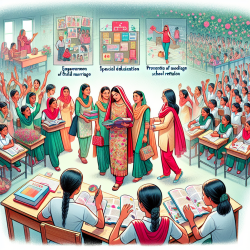The COVID-19 pandemic has highlighted various challenges in public health, one of which is vaccine hesitancy. A recent study conducted in South Tyrol, Italy, sheds light on the disparities between rural and urban populations regarding vaccine acceptance. This blog post aims to explore these findings and provide actionable insights for practitioners looking to improve vaccination rates.
The Study at a Glance
The research titled Rural-Urban Disparities in Vaccine Hesitancy among Adults in South Tyrol, Italy analyzed data from 1426 participants. It found that 17.6% of rural residents reported hesitancy towards COVID-19 vaccination compared to 12.8% of urban residents. The study identified several factors contributing to this disparity.
Key Findings and Implications
- Educational Disparities: Rural residents were less likely to have post-secondary education, which correlated with higher vaccine hesitancy.
- Economic Impact: The economic situation worsened more for rural residents during the pandemic, influencing their trust in vaccines.
- Lack of Trust: Trust in national and local health institutions was notably lower among rural populations.
- Conspiracy Theories: Rural residents were more susceptible to conspiracy thinking, affecting their willingness to vaccinate.
These findings suggest that addressing educational gaps and building trust in health institutions could be crucial steps in increasing vaccine uptake in rural areas.
Actionable Steps for Practitioners
Practitioners can play a pivotal role in mitigating vaccine hesitancy by implementing targeted strategies:
- Community Engagement: Engage local leaders and influencers to disseminate accurate information about vaccines.
- Educational Initiatives: Develop programs that enhance understanding of vaccine benefits and safety, tailored specifically for rural communities.
- Building Trust: Foster relationships with healthcare providers who are trusted figures within the community.
The research underscores the importance of understanding community-specific barriers to vaccine acceptance. By leveraging these insights, practitioners can design more effective interventions to improve public health outcomes.
Encouraging Further Research
This study opens avenues for further research into the social determinants of health that contribute to vaccine hesitancy. Investigating additional factors such as political beliefs or access to healthcare services could provide a more comprehensive understanding of this issue.
To read the original research paper, please follow this link: Rural-Urban Disparities in Vaccine Hesitancy among Adults in South Tyrol, Italy.










